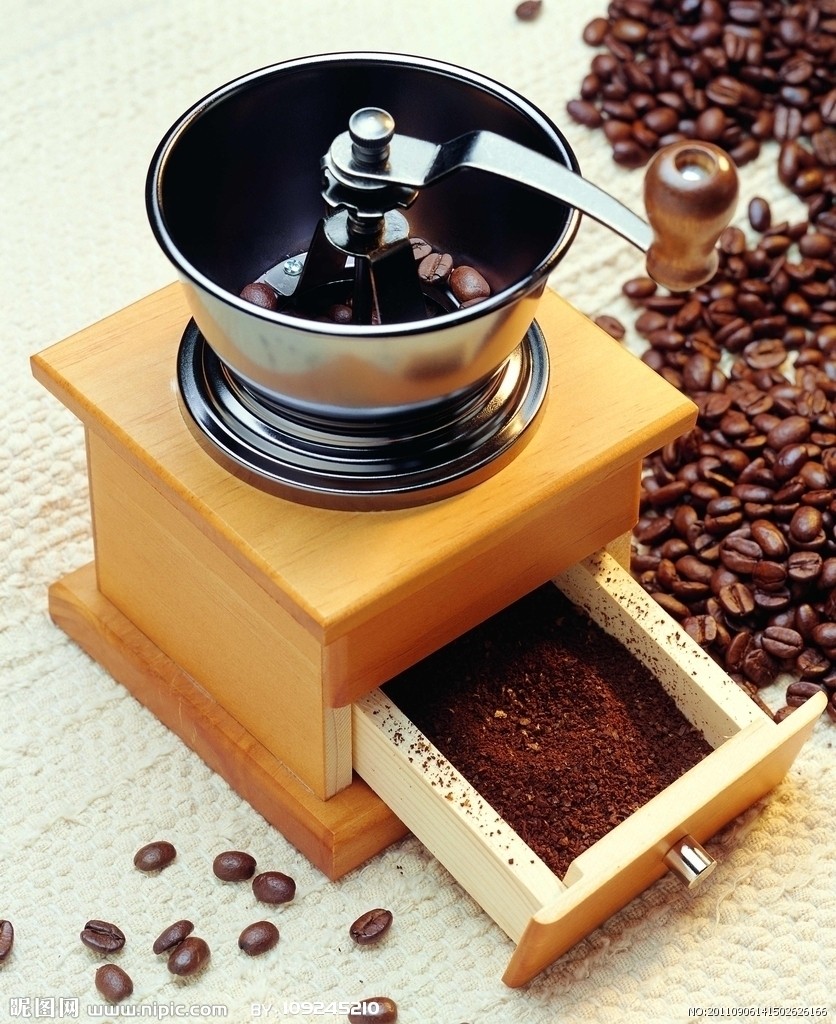Coffee newcomers learn main points: it is important to brew a good cup of coffee and choose fresh coffee beans.
If we further explain the meaning of "brewing coffee", it can be said to be "extracting aromatic substances from coffee beans by water." in the process of brewing, various ingredients in coffee beans are released into the water by the dissolution of water. this process is called "extraction". There are many ingredients in coffee beans, the best known is the refreshing caffeine, in addition to coffee beans there are many oils, minerals, acids and aromatic substances. Wait, if a lot of these substances dissolve into the water in the process of brewing coffee, we can say that the extraction rate of this cup of coffee is very high, otherwise, the extraction rate of this cup of coffee is low.
Since we only want to extract oil and aroma substances from coffee beans, not caffeine and other bitter ingredients, so another way to say a good cup of coffee is: "A cup of coffee with the right extract from coffee beans." if you keep the impression of coffee as "coffee = bitter", congratulations on entering the previously unknown coffee time.
We already know from the above that brewing coffee is to extract the good and fragrant substances from coffee beans and give up the bad substances, but how to judge when the good substances will come out and when the bad substances will come out? The only way is to taste it with your tongue. If you think the brewed coffee is bitter and astringent and difficult to swallow, it must be a failed cup of coffee! Fortunately, the good substances in coffee beans will be dissolved by water more quickly, while caffeine and most of the bitter substances we don't want will be dissolved more slowly, so we can use this feature to make the right coffee. In other words, the correct brewing is to carefully control the time the coffee powder is immersed in water (along with the thickness of grinding) and stop the extraction reaction at the right time in order to get the best quality coffee.
Many of the brewing methods or data I have introduced can be appropriately adjusted according to everyone's preference, experience and taste, but there are still some major principles that are common to brewing coffee. I try to sum up five points. let's call it the "five principles of making coffee."
1. Fresh coffee beans
two。 Correct grinding
3. Good water quality
4. Appropriate water temperature
5. Make it gently
No matter what kind of brewing method or personal habit, these five rules can be said to apply everywhere, if any of them are violated in the brewing process, the result is likely to be a failed cup of coffee!
Today, let's take a closer look at the first point.

Rule number one: fresh coffee beans
If you ask a famous chef: how to cook delicious food? I believe that there must be "fresh ingredients" in his answer, because as long as a good cook will not use stale, out-of-date materials to cook his specialty dishes, coffee is the same, the first step in a good cup of coffee is fresh coffee beans.
What are fresh coffee beans? Please refer to the shelf life of coffee beans listed in the table below, you may be surprised by the harsh conditions, but in fact, coffee beans begin to lose their freshness after baking, and as the time spent in contact with the air increases, the beautiful substances in coffee beans gradually decrease, especially those that have been ground. Why do ground coffee beans have a shelf life of only 5-10 minutes? The main reason is that the ground coffee beans have a very large surface area, so the oxidation rate is relatively several times faster, and it won't be long before the coffee beans deteriorate due to oxidation, let alone try to make good coffee.
Therefore, it is strongly recommended that any coffee must be ground before brewing, and only one cup at a time! Even if there are ten cups to cook, it is best to wait until you have finished one cup and then grind the next cup. Do not grind a pile in advance to save time in making coffee. So the next time you walk into a strange coffee shop, you can feel at least half relieved if you take a look at the store's fresh brewing, but if you see that the coffee maker scoops out the pre-ground coffee powder from the sealed jar, you have to think carefully about whether you want to drink this coffee!
From the point of view of fresh grinding and cooking, buying ground coffee beans is obviously the most difficult way to keep them fresh. the most common situation is to go to a coffee shop and buy a pound of coffee beans and ask the store to grind them instead. Think about it. How long will it take to finish a pound of coffee beans? A week? Or two weeks? No matter how long it takes to finish it, it has exceeded the 10-minute fresh deadline on the way home alone. how can you expect to make good coffee with coffee beans that have lost their freshness?
By the same token, there is no need to blindly believe in foreign brand-name coffee beans, especially those that have been ground-even though manufacturers have repeatedly stressed in their advertisements that we attach great importance to the freshness of coffee beans, airlift to China, low-temperature nitrogen irrigation to keep them fresh, and so on, but what is in front of us is expired coffee beans. Therefore, I would like to suggest that if you like coffee, like to drink good coffee, and like to make coffee at home, it is better to spend more money on a bean grinder.
Shelf life of coffee beans
Coffee bean species retention time (limit)
Unbaked coffee raw beans 1 Mel-2 years
Roasted coffee beans (for cooking espresso) take about 3 weeks.
Roasted coffee beans (other than espresso) for 30-45 days
Ground coffee beans for 5-10 minutes
Coffee beans must be kept in a good environment to have the above life.
Source: network
Important Notice :
前街咖啡 FrontStreet Coffee has moved to new addredd:
FrontStreet Coffee Address: 315,Donghua East Road,GuangZhou
Tel:020 38364473
- Prev

Coffee grinding technology: the technical explanation of coffee pressing powder, filling powder and powder thickness to choose the right one.
Guide: the scale only tells you which direction is thick and which direction is fine. When you find the right powder thickness, the effect of the scale will show a little bit. 1. Powder thickness XX bean grinder scale should be adjusted to? The scale is only a reference. Different brands have different grinding scales, and the performance of bean grinders of the same brand and the same model under the same scale is not exactly the same.
- Next

Introduction to the production of Italian Coffee: the way to determine the Oil of Espresso (Italian concentrate) Coffee
1, the flow rate of Italian concentration: the flow rate directly determines the taste of ESPRESSO, too fast flow rate will make the essence of coffee has not been dissolved into the water, but the water has passed through the coffee powder, resulting in coffee tasteless; too slow flow rate will make coffee essence and dregs all into the water, resulting in coffee with obvious scorching taste or exciting bitter taste. For beginners,
Related
- What is the meaning of lactic acid fermentation with coffee bean treatment?
- How to judge the state of foam by sound?
- How does the latte pull out the unicorn pattern? Come to get for a little trick to improve the flower pull!
- Will flower pulling affect the taste of the latte?
- Do you know the history of coffee?
- The difference between honey treatment and sun washing what is raisin honey treatment?
- What kind of milk can a novice use to make coffee foam to keep the foam longer? The correct method and skills of milking tutorial sharing
- Why do washed coffee beans taste sour? Flavor characteristics of washed Coffee
- Introduction to the skill of how to practice the size and height of water injection around the circle of hand-brewed coffee
- How do beginners practice coffee flower drawing from scratch?

